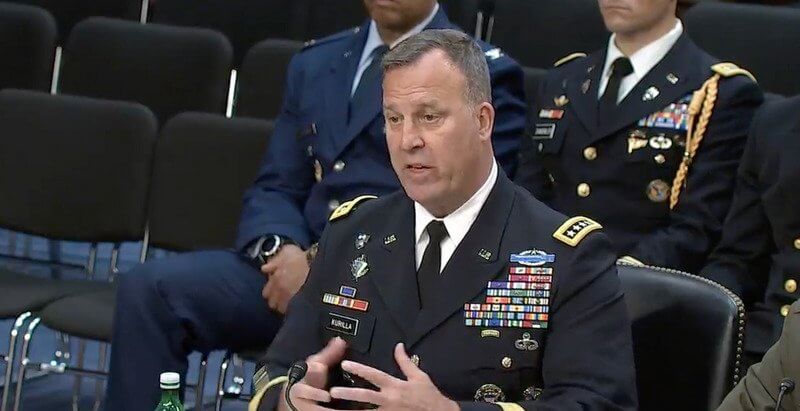By: Micaela Burrow, Daily Caller News Foundation
Drones fired by Iran-backed militias at U.S. bases in Iraq and Syria could have killed more U.S. soldiers in recent months if not for several strokes of luck, the military commander in charge of U.S. Mideast forces told Congress on Thursday.
Iran-backed suicide drone attacks connected to U.S. support for Israel have injured dozens of troops since October, and in January for the first time they killed three U.S. Army reservists. That number could have been higher if the explosive-laden drones hadn’t missed their targets after U.S. air defenses were unable to shoot them down before they reached the base, Gen. Michael “Erik” Kurilla, who heads U.S. Central Command (CENTCOM), told a Senate Armed Services Committee panel on Thursday, according to Military.com.
“There are several incidents where UAVs coming into a base hit another object, got caught up in a netting or other incidents where, had they hit the appropriate target that they were targeting, it would have injured or killed service members,” Kurilla said, using the military’s term for drones — unmanned aerial vehicles (UAVs).
Committee ranking member Sen. Roger Wicker of Mississippi had asked if the militias would have hit their targets “with a little extra luck.”
“That is correct,” Kurilla responded.
Pentagon officials insisted the U.S. had taken adequate measures to ensure U.S. soldiers stationed in Iraq and Syria had capable air defenses. But Kurilla’s statements suggest that U.S. troops may have been in greater danger than officials let on.
“I’m not going to get into readiness levels, other than, you know, we obviously understand that counter-drone is a significant requirement and something that I can assure you is taken very, very seriously,” Pentagon press secretary Maj. Gen. Pat Ryder said early in February.
The militias have conducted 173 missile, rocket and drone attacks against U.S. troops since Oct. 18, Kurilla said.
There have been no new attacks on U.S. troops in more than one month. The retaliatory large-scale strikes against sites associated with the militias and Iran’s Islamic Revolutionary Guard Corps (IRCG) CENTCOM carried out in February and the assassination of a senior militia commander had an impact, Kurilla told Congress.
“The key to establishing deterrence is Iran has to understand there are consequences to their actions,” he said. “I think on the last attack that we did against 85 targets, our messaging matched our actions,” Kurilla said.
While Iran has reined in its proxies in Iraq and Syria, it has not been deterred “in terms of their funding and equipping,” Kurilla said. “Deterrence is always temporary,” he added.
Meanwhile, the Iran-backed Houthi attacks against Red Sea shipping and U.S. Navy ships have only grown more intense. On Wednesday, a Houthi anti-ship ballistic missile struck a commercial vessel, killing three crew members for the first time and inflicting severe burns injuries on several other crew members.
“I would tell you Iran is undeterred in support to the Houthis. They’re undeterred in their support to Hezbollah, their support to Hamas, their support into the West Bank,” Kurilla said.
Related Story: U.S. Conducts Second Round of Retaliatory Airstrikes in Syria as Attacks on Troops Rises to 41









